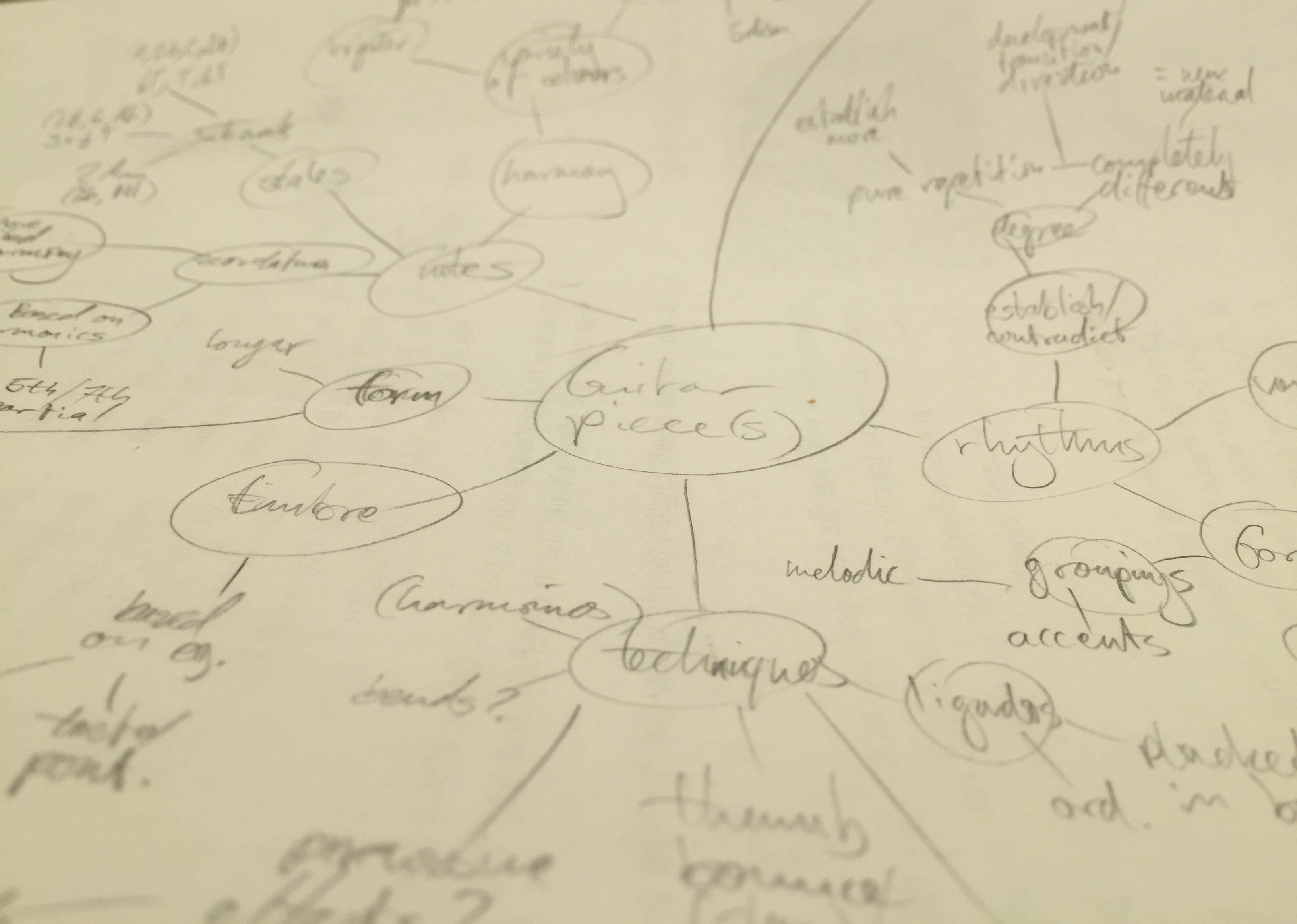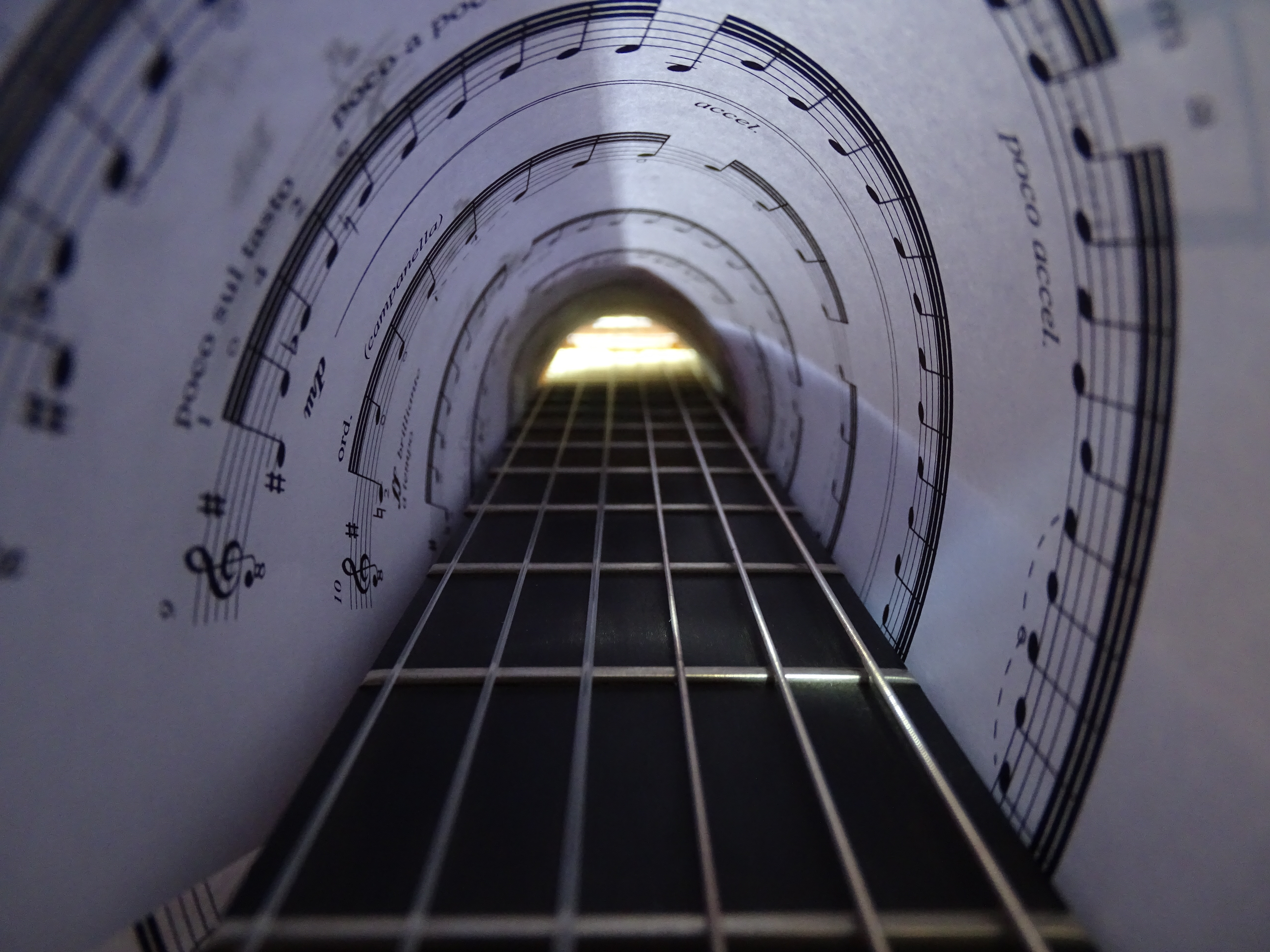
Here begin the chronicles of my musical compositions. This is far from the beginning of my journey into music, but the start of me documenting it so closely.
The final manifestation of the finished piece when it’s performed on stage is only a fraction of what goes into it, and I believe there is value in sharing this with you.
Each post is a chapter in this narrative, and with me you will follow the evolution of a piece of music from the ideas that give birth to it, through its gradual manifestation in note form, its successes and failures, to it being brought to life in performance.
As it moves from its infancy to maturity, changes are made, obstacles are encountered, and there are troubles and triumphs. I hope that by showing you how a piece progresses towards its finished state, we can all learn together.
Composing for the guitar
The instrument I am referring to is usually called the “classical” guitar. Although I love composing for any kind of musical medium from the most minimal to the enormous, the guitar is what you’ll most see here because:
- The “classical” guitar is my instrument, and the one that has followed me round the world for the past 25 years or so.
- With it I can show you the entire process of a piece of music being brought to life first-hand.
- For those less used to reading scores, I can play it for you, and the one-stave format is also reasonably easy to follow.
- The guitar is an instrument that is difficult to compose for if you don’t play it yourself. Rather than just follow a manual of dos and don’ts, you can learn from how someone who is a composer and guitarist tackles the whole process.
- Most importantly for me, I feel I owe the guitar a serious body of work.
Considering the years I mentioned, I am still only really at the beginning of my journey as far as writing for the guitar is concerned, with just a handful of pieces and transcriptions. I did write a piece for guitar and orchestra that was performed in the Córdoba Guitar Festival in July 2012 though: “From Shimmers on Dust Clouds”, played by the very talented guitarist María José Tirador and conducted by Ciro Perelló with the Young “Leo Brouwer” Philharmonic.
Now it is clear that it is time for me to develop a serious body of work for the instrument. I invite you to share this journey with me, learning with me from what we discover along the way, and very much hope you enjoy the music.
Next
The next post includes the score of the first part of the first piece you’ll see and hear chronicled in this blog and why I’m writing it. It will be a piece for solo guitar with several movements.
-Roni

